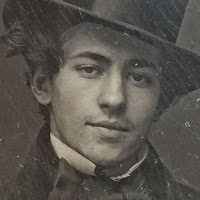Lucille seems tragic, but with a touch of inhumanity.
The long and short of it is,
Lucille is not a nice person.
Taking a toddler to France in dangerous
political times is iffy at best, so we start with that. Then Lucille's loss
of her husband and her imprisonment, rape, and torture made her very
hard. Cold. Fanatical almost.
Annique paid the price.
Annique paid the price.
Frankly, Lucille exploited Annique and spared her very little. Just as Lucille spared herself nothing.
Was Lucille a villain who manipulated and used her daughter and later Justine in a despicable way
or a heroine who stepped up when England's existence was at
stake?
Was she a woman who sacrificed everything she cared about for England's sake?
Or a selfish ideologue?
Or, like, all of the above?
I don't explain and we never go into her head. I try to show her as a woman with regrets. I'm hoping the reader will find her believable as a person and wonder about her and feel sorry for her.
She had just a touch of inhumanity
On the exculpatory side:
Lucille,
as a high-level officer of the Secret Police, curbed some of the evil things going on. Justine's rescue from the child brothel and
sending Justine to help the last of the Caches are two examples of
Lucille's work.
Did she really keep a brothel?

Well ... yes.
I have trouble writing about historical whoredom. It needs somebody wiser than me.
Women had few career choices in this era. Some women, for one reason or another, became whores. A rich, well-run brothel like the one Lucille ran was an island of safety in a city
visited by war, revolution, riot, and the occasional bout of starvation.
The woman working there were grateful to be in the place. They had different expectations than run in the world of 1867 or 2018.
So I'm trying to deal with difficult historical realities in the context in which contemporaries would have judged them. Also trying not to be too realistic.
She raised Annique to be a spy, naively committed to France, while using her for the opposite cause. She set Annique up for the heartbreak and disillusionment in TSL,
Lucille wouldn't have felt it was morally dreadful to be a French patriot. Lucille spent her whole life among French patriots and, I think, loved some of them. Arguably, France was on the right philosophical side in that war.
Lucille chose loyalty to the British. She left Annique free to choose which side she'd be on.
Annique feels betrayed when she sees all her letters and reports have found their way to the British. A tough day to be Annique.
I
don't say what happens to Grey and Annique after the end of TSL, since I
want to be free to return to the timeline and write a story there if I
ever decide to which I probably won't though.
I'm sure they had a true HEA, which means they both found uses for all their talents.
Maybe out in India. Or maybe they went under deep cover in the south of
France and ran a safehouse. I know they did exciting things.
Why does Shandor have a Hungarian name? At least, the spelling isn't Hungarian but the sound of it is.
It's a Kaldarashi name. A Rom name.
At the end of Rogue Spy, what was Galba's final reaction to Pax's insubordination?
All
along, Doyle and Grey kept Galba in the loop about what was going
forward. Galba, in the manner of senior management since the dawn of
time, turned a blind eye to what he couldn't prevent . . . and what was ultimately serving his purposes.
Galba would have
preferred that Pax not be the one to kill his own father, (Who among us wishes to promote patricide?) but he
approves of the overall outcome.
After the close of the book Galba
gives Pax a legendary and wide-ranging chewing out. Then Grey, Doyle, and Galba take turns interfering with wedding preparations to brief Pax on what they expect from him when he
heads back to Italy.
Who replaced Grey when he retired?
Some "guy I didn't need to name or worry about what happened to him" took over. Then another guy, likewise. Then Adrian.

When Adrian stepped into Galba's shoes as Head of Service, the position of Head of the British Section was taken by -- you guessed it -- another "guy I don't need to name or worry about."
All
else being equal I'd rather not name or describe characters who aren't
necessary to the action because I always have more than enough
characters anyhow.
How did Justine learn about Lucille's death and how was she affected by
it? I expected to see this come up in The Black Hawk when the story
moved parallel of the events in Spymaster's Lady and Vauban's death was
mentioned.
[SPOILER]
What we're looking at here is the section of Black Hawk that begins with Hawker coming to Justine's window carrying a letter and ends when Justine shoots Hawker.
[END SPOILER]
In this time frame Vauban had been dead about a week. Lucille, who has been in Italy for months, has been dead a few weeks.
The action of TSL begins after the action of this section ends.
Before this Black Hawk section opens .... Lucille dies. Annique leaves immediately for
Paris. Soulier's resident spy sends word of Lucille's death to Soulier in
London. LeBlanc's assassin, having killed Lucille, spends a lot of time attempting to find
Annique and finish the job. He then wastes more time trying to track her
north. Eventually the assassin rides for Paris and reports to LeBlanc.
During
the TBH section, only LeBlanc, Soulier, a couple messengers, folks
in Italy, and Annique know about Lucille's death. Justine meets none of
these people except LeBlanc and he's not about to reveal he knows Lucille
is dead because he has no legitimate way to have this news.
After the BH section, Paris Secret Police get the info.
So Justine doesn't learn about Lucille's death "on stage," as it were, and we don't see her reaction.







































